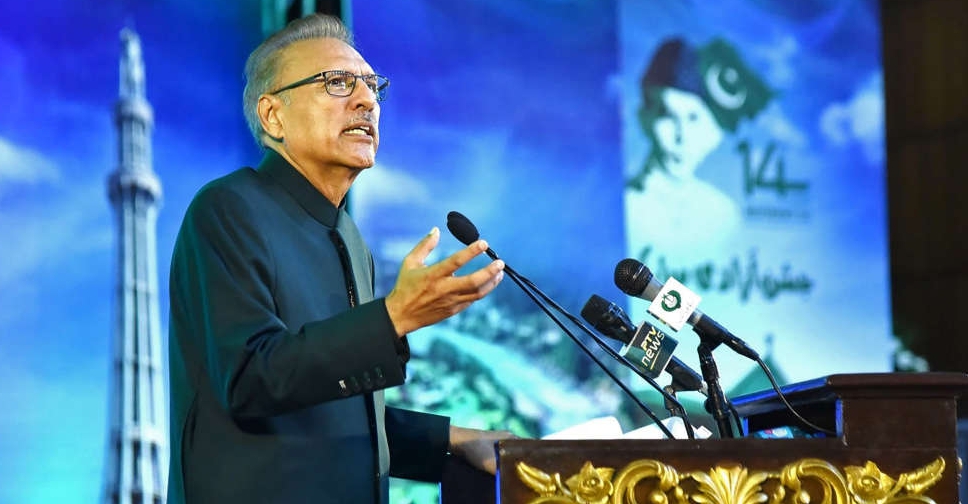
Pakistan's President Arif Alvi said on Sunday he had refused to sign into law two bills that would give authorities more power to prosecute people for acts against the state and military, a move the law ministry said was unconstitutional.
The bills have already been passed by both houses of Pakistan's parliament but Alvi is a member of former prime minister Imran Khan's Pakistan Tehreek-e-Insaf (PTI) party, which opposes the coalition government that passed the two bills.
"I did not sign Official Secrets Amendment Bill 2023 & Pakistan Army Amendment Bill 2023 as I disagreed with these laws," Alvi said on social media platform X, formerly known as Twitter.
He said he had asked his staff to return the bills unsigned to the legislature within the stipulated time to make them ineffective.
"However I have found out today that my staff undermined my will and command," he said.
The ministry of law and justice said the president's decision was of "grave concern".
"The President has two options: either give assent, or refer the matter to the parliament with specific observations," the ministry said in a statement, adding that the president had not fulfilled either option. "Such a course of action is against the letter and spirit of the constitution," it said.
According to the constitution, if the president doesn't sign a draft bill or return it with his observations or objections within 10 days after it has already been through the two houses it will become law.
"As the president didn't sign and return the bill within 10 days, it became a law," caretaker law minister Ahmad Iran told a news conference.
Caretaker Information Minister Murtaza Solangi said Alvi's comments on his personal social media account had no authority because he did not send back any objections to the bills within the stipulated timeframe.
"It is just an attempt to create confusion. It has no legal value," Solangi said.

 UK inquiry finds 'chilling' cover-up of infected blood scandal
UK inquiry finds 'chilling' cover-up of infected blood scandal
 Iranian President Raisi killed in helicopter accident, state media says
Iranian President Raisi killed in helicopter accident, state media says
 ICC prosecutor seeks arrest warrants for Israeli, Hamas leaders
ICC prosecutor seeks arrest warrants for Israeli, Hamas leaders
 Assange given permission to appeal against US extradition
Assange given permission to appeal against US extradition
 Israel intends to broaden Rafah sweep, Defence Minister tells US
Israel intends to broaden Rafah sweep, Defence Minister tells US




